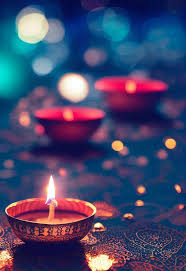Diwali, also known as Deepavali, is one of the most celebrated festivals in India and among Indian communities worldwide. This festival, which spans five days, marks the victory of light over darkness and good over evil. The word "Diwali" is derived from the Sanskrit term "Deepavali," meaning "a row of lights." Each year, millions of people adorn their homes with lights, candles, and oil lamps, celebrating with fervor and joy. The significance of Diwali transcends religious boundaries, embracing themes of renewal, hope, and community.
Historical Significance
The origins of Diwali can be traced back to various ancient texts and historical events. Different regions and religions in India celebrate Diwali for different reasons:
Hindu Tradition: For Hindus, Diwali commemorates the return of Lord Rama to Ayodhya after 14 years of exile, during which he defeated the demon king Ravana. The people of Ayodhya lit oil lamps to welcome Rama, Sita, and Lakshmana back home. This event is narrated in the epic Ramayana.
Jain Tradition: Jains celebrate Diwali as the day Lord Mahavira attained Nirvana (liberation) in 527 BCE. It is a time of reflection and spiritual growth.
Sikh Tradition: For Sikhs, Diwali marks the release of Guru Hargobind Ji from imprisonment in 1619. The Golden Temple in Amritsar is illuminated beautifully, drawing visitors from across the globe.
Buddhist Tradition: Some Buddhists, particularly in Nepal, observe Diwali to honor Emperor Ashoka's conversion to Buddhism.
Each of these narratives highlights the central themes of light, knowledge, and the triumph of good over evil.
The Five Days of Diwali
Diwali is celebrated over five days, each with its unique rituals and significance:
Dhanteras: The festival begins with Dhanteras, which is dedicated to wealth and prosperity. On this day, people purchase new utensils or gold, signifying the welcoming of Goddess Lakshmi into their homes.
Naraka Chaturdashi (Choti Diwali): The second day is known as Naraka Chaturdashi or Choti Diwali, commemorating Lord Krishna's victory over the demon Narakasura. It is a day of purification and preparation for the main festivities.
Diwali (Lakshmi Puja): The third day is the main Diwali celebration. Families perform Lakshmi Puja, invoking the Goddess of Wealth. Homes are decorated with rangoli, lights, and diyas (oil lamps). Fireworks light up the night sky, symbolizing the joy of the occasion.
Govardhan Puja: The fourth day is celebrated as Govardhan Puja or Annakut, which commemorates Lord Krishna's act of lifting the Govardhan Hill to protect villagers from torrential rain. It is a day of gratitude and celebration with a variety of food offerings.
Bhai Dooj: The final day of Diwali is Bhai Dooj, celebrating the bond between brothers and sisters. Sisters pray for their brothers' well-being, and brothers, in turn, offer gifts as a token of love.
Cultural Significance
Diwali is not only a religious festival but also a cultural phenomenon that brings people together. It fosters a sense of community and belonging, transcending barriers of caste, creed, and religion. During this time, families come together, share meals, and strengthen bonds.
The festival encourages acts of kindness and charity. Many people donate to the less fortunate, share sweets with neighbors, and engage in community service. This spirit of giving reinforces the values of compassion and unity, which are essential to human society.
Preparations and Celebrations
The preparations for Diwali begin weeks in advance. People clean and decorate their homes, often incorporating traditional motifs like rangoli, a colorful pattern made from colored powders or flower petals at the entrance of homes. This practice is believed to invite prosperity and good luck.
Shopping is another vital aspect of Diwali preparations. Markets are bustling with activity as people buy new clothes, sweets, and gifts for loved ones. The festival is also a time for culinary delights, with families preparing traditional sweets like ladoos, barfis, and gulab jamun.
On Diwali night, families gather to perform puja, offering prayers to Lakshmi and Ganesh for wealth and wisdom. After the puja, the lights are lit, fireworks are set off, and the celebration truly begins. The night sky becomes a canvas of colors, and the air is filled with joy and excitement.
Diwali Around the World
Diwali is not confined to India; it is celebrated across the globe in various forms. In countries like Nepal, Sri Lanka, Malaysia, and Mauritius, the festival is observed with great enthusiasm, showcasing unique local traditions.
In the United States, Diwali has gained popularity in recent years, with community celebrations organized in major cities. Many cultural organizations hold events, including dance performances, music, and food fairs, bringing together diverse communities.
In the United Kingdom, Diwali is marked by large-scale celebrations, particularly in areas with significant Indian populations. The streets are adorned with lights, and festivals are organized in public spaces, promoting cultural awareness and understanding.
Environmental Considerations
While Diwali is a time of joy and celebration, it also poses environmental challenges. The use of fireworks contributes to air and noise pollution, affecting health and well-being. As awareness of environmental issues grows, many people are seeking eco-friendly alternatives to traditional practices.
The promotion of green Diwali encourages the use of organic colors for rangoli, noise-free fireworks, and sustainable decorations. Many communities are adopting measures to reduce waste and promote recycling during the festivities.
Conclusion
Diwali is a celebration of hope, renewal, and the triumph of good over evil. It serves as a reminder of the importance of community, compassion, and togetherness. As we light our diyas and share sweets with loved ones, let us also reflect on the deeper meanings of the festival.
In a world often overshadowed by negativity, Diwali shines as a beacon of light, reminding us of the potential for goodness within ourselves. May the spirit of Diwali inspire us to spread love, kindness, and understanding, lighting up the lives of those around us and fostering harmony in our communities.
As we celebrate this joyous occasion, let us commit to making our world a better place, embodying the values that Diwali represents—peace, joy, and unity. Happy Diwali!




.jpeg)
